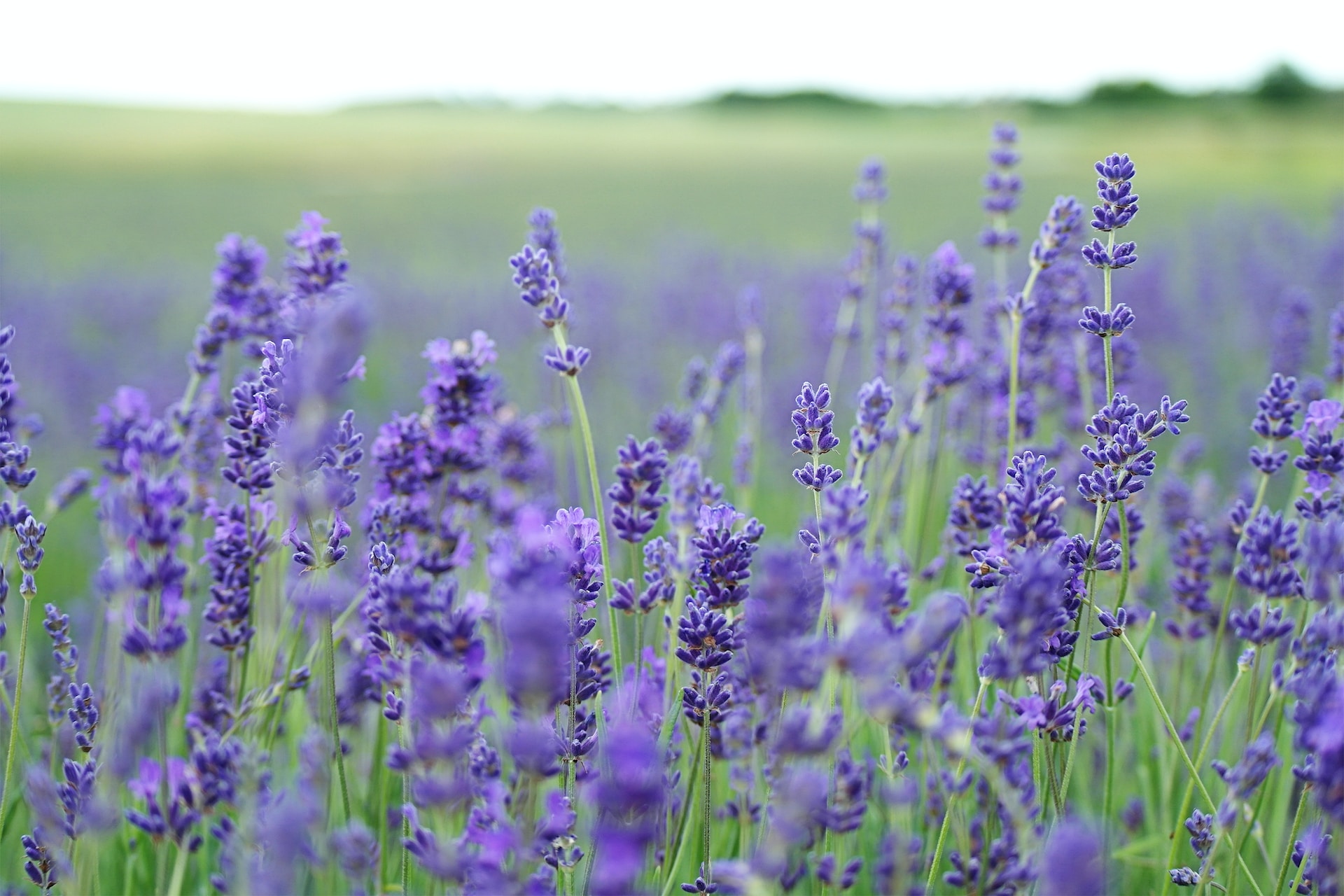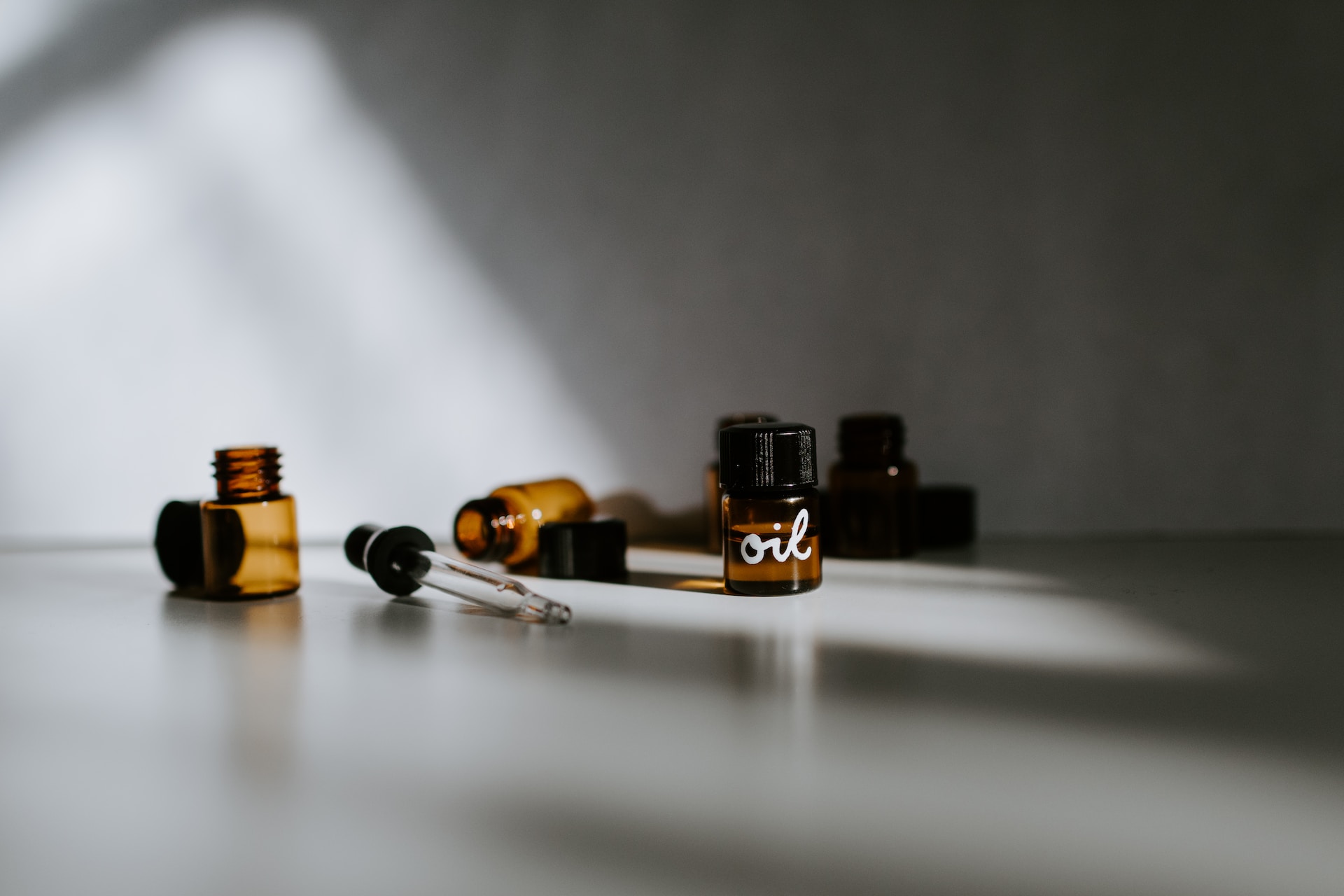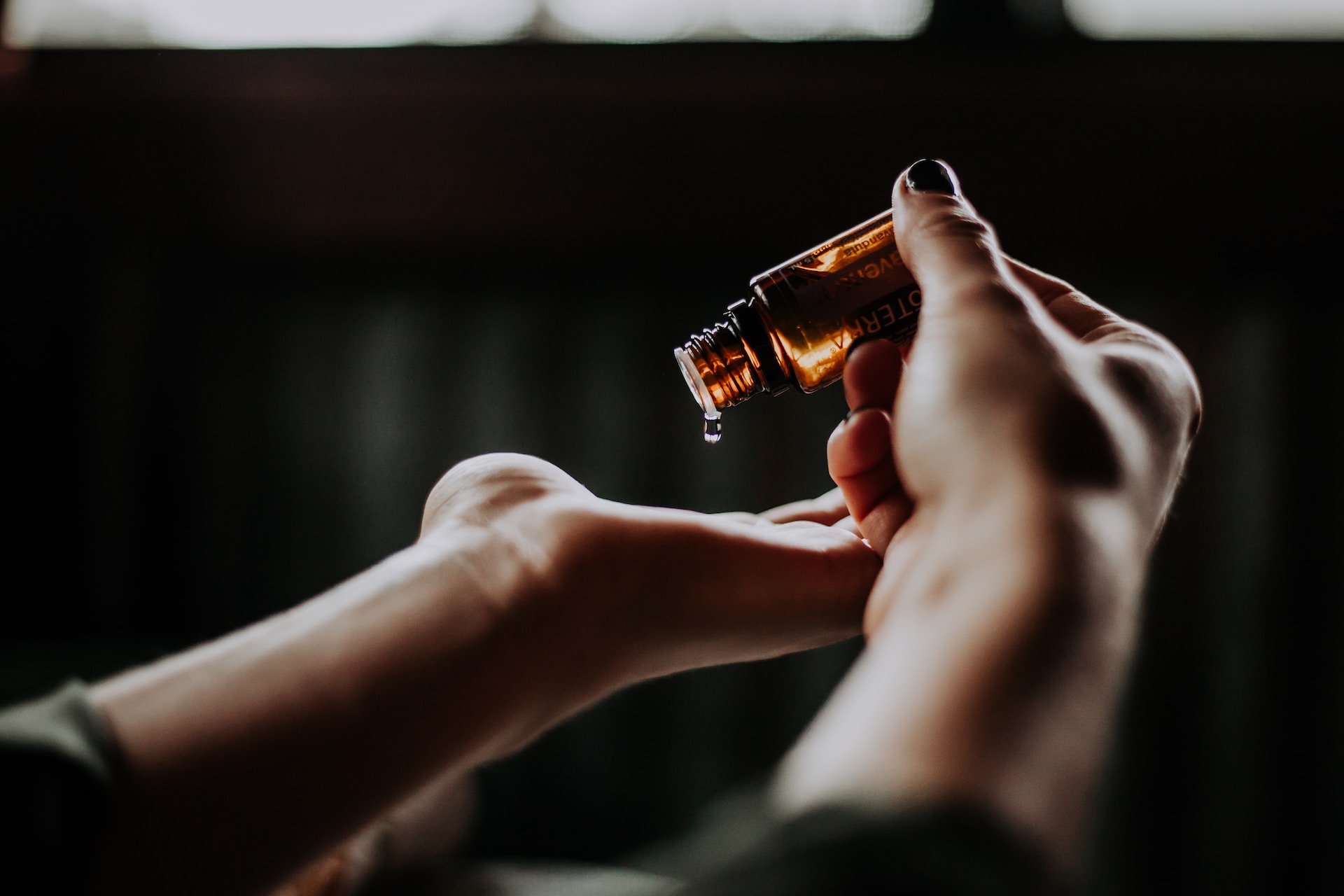Many people find it difficult to get a good night’s sleep in today’s world filled with constant stimulation and mounting stress. Sometimes we struggle to calm our minds and relax our bodies, leaving us tired and looking for a solution to restore our energy.
If you’ve found yourself caught in the cycle of sleepless nights, it’s time to discover lavender oil’s incredible benefits. It has long been celebrated for its soothing properties that promote restful sleep. Therefore, this comprehensive guide will explore how to use lavender oil for sleep and its benefits. Let’s dive in.
The Benefits of Lavender Oil

Image by Unsplash
The following are some of the benefits of lavender oil that you should be aware of.
1. Promotes Relaxation and Reduces Stress
Lavender oil is renowned for its remarkable ability to induce relaxation and alleviate stress. Its soothing aroma calms the nervous system, reducing anxiety and promoting tranquillity.
The fragrance of lavender oil stimulates the production of serotonin, a neurotransmitter that contributes to well-being and happiness. Further, lavender oil has been found to lower cortisol levels, the stress hormone, helping you relax. Therefore, you can promote a more restful sleep by including lavender oil in your sleep routine.
2. Enhances Sleep Quality
One of the key benefits of lavender oil is its potential to enhance sleep quality. Research has shown that inhaling lavender oil before bedtime can improve the duration and depth of sleep.
The relaxing properties of lavender oil help to calm the mind and prepare the body for a more profound rest. It promotes relaxation and calmness, allowing for deeper sleep and rejuvenation upon waking.
3. Alleviates Insomnia Symptoms
Lavender oil is ideal for people who have insomnia or experience occasional sleeplessness. Its sedative properties make it easier to fall asleep and stay asleep throughout the night.
Applying lavender oil topically or inhaling its soothing scent can help you unwind and sleep better at night. The calming effects of lavender oil help induce sleep and make sleep more peaceful and rejuvenating.
4 Basic Steps To Treat Insomnia Yourself
How To Use Lavender Oil for Sleep

Image by Unsplash
Having learned the beneficial effects of lavender oil, let’s look at how to use lavender oil for sleep. The following are several great ways to use lavender oil to help you sleep better.
1. Apply Lavender Oil to Skin
Applying lavender oil topically is an effective way to experience its sleep-enhancing benefits. Mix a few drops of lavender oil with a carrier oil such as coconut or almond. Apply the mixture to pulse points or areas where you can easily inhale the scent, like wrists, temples, necks, or soles of feet. Use it around 30 minutes before sleep to promote relaxation and help you sleep better.
2. Apply Lavender Oil to the Pillow
To enhance your sleep experience, apply a few drops of lavender oil directly to your pillow. The calming scent of lavender will create a soothing atmosphere that promotes relaxation and restful sleep. Allow the oil to disperse, and enjoy the subtle aroma as you drift off into a peaceful slumber.
3. Using a Diffuser
Using a diffuser is a convenient way to enjoy the soothing scent of lavender oil for better sleep. Fill the diffuser with water according to its instructions, then add a few drops of lavender oil. Let the diffuser disperse the scent throughout your room for a calming environment that makes you sleep better.
4. Using a Tissue
With a drop or two, you can enjoy lavender oil’s calming scent on a tissue or handkerchief. Breathe deeply into the scented tissue, allowing the lavender’s soothing aroma to promote relaxation and sleep. Alternatively, you may place the tissue beside your pillow.
Best Essential Oils for Sleep

Image by Unsplash
Lavender oil is a popular choice for promoting sleep, but many other essential oils can also help you get a good night’s sleep. These essential oils are known for making you sleep better:
1. Ylang Ylang Oil
Essential oil Ylang Ylang is derived from the flowers of the Cananga odorata tree native to tropical Asia. It’s known for its unique fragrance. Its therapeutic uses are promoting relaxation, reducing stress, and improving sleep.
Properties of Ylang Ylang Oil
- Aroma: Ylang Ylang oil possesses a sweet, floral, and slightly fruity aroma. Many people describe the scent as exotic, luxurious, and uplifting.
- Balancing Properties: This essential oil is known for its balancing properties, harmonizing the mind and body.
Benefits of Ylang Ylang Oil
- Relaxation and Stress Relief: Ylang Ylang oil induces relaxation and alleviates stress. Its pleasant aroma helps calm the nervous system, reducing tension and anxiety. As a result of its aromatherapy use, it promotes a sense of well-being and peace of mind.
- Sleep Enhancement: Ylang Ylang oil improves sleep quality by creating a serene atmosphere. It helps people relax before bed, which helps them fall asleep faster and have a restful, rejuvenating sleep.
- Aphrodisiac Properties: Its sensual fragrance and mood-enhancing properties make Ylang Ylang oil an aphrodisiac. It can create a romantic and intimate atmosphere, promoting intimacy and passion.
- Skincare Benefits: Ylang Ylang oil offers skincare benefits. It balances sebum production, making it suitable for oily and dry skin. Ylang Ylang oil moisturizes and nourishes your skin, improves its appearance, and makes you look young.
There are several ways to use Ylang Ylang oil, including topically, in a diffuser, or as part of bath and skincare products.
2. Sandalwood Oil
It’s an essential oil derived from the heartwood of sandalwood trees (Santalum album). For centuries, this oil has been treasured for its therapeutic properties and rich, woody aroma.
Properties of Sandalwood Oil
- Aroma: Sandalwood oil has a distinctive and luxurious woody fragrance that is warm, smooth, and lingering. Many people describe the scent as grounding, calming, and meditative.
- Therapeutic Properties: Sandalwood oil is known for its soothing, relaxing, and balancing properties, making it a popular wellness oil.
Benefits of Sandalwood Oil
- Relaxation and Stress Reduction: Sandalwood oil promotes relaxation and helps reduce stress and anxiety. Its aromatic profile allows quiet, racing thoughts and induces a sense of tranquillity.
- Sleep Support: With its calming properties, sandalwood oil can support restful sleep. It creates a serene environment, facilitating more profound and rejuvenating sleep as the body and mind unwind before bed.
- Emotional Well-being: Sandalwood oil has been traditionally used to enhance emotional well-being. In addition to uplifting the mood and easing tension and irritability, it promotes inner peace and well-being.
- Skincare Benefits: Sandalwood oil has many benefits for the skin. The moisturizing and soothing properties help hydrate the skin, reduce inflammation, and reduce blemishes. It is often used in skincare products to promote a healthy and radiant complexion.
Its relaxing properties, fragrance, and several other benefits make sandalwood oil a popular essential oil for sleep support.
3. Chamomile Oil
Chamomile oil is a prized essential oil derived from the flowers of the chamomile plant. It is most commonly derived from the Roman chamomile (Chamaemelum nobile) or German chamomile (Matricaria chamomilla) species. Traditional medicine and skincare have used chamomile oil for centuries for its gentle and soothing properties.
Properties of Chamomile Oil
- Aroma: Chamomile oil has a sweet, floral, and slightly fruity aroma that is soothing and comforting. Many people describe its scent as relaxing and therapeutic.
- Therapeutic Properties: Chamomile oil has soothing, anti-inflammatory, and calming properties, making it a popular choice for promoting relaxation.
Benefits of Chamomile Oil
- Relaxation and Stress Relief: Chamomile oil helps calm the mind and relax the body, reducing stress and anxiety. As a result of its gentle aroma, it promotes a feeling of tranquillity and relaxation.
- Sleep Aid: Chamomile oil has a well-known sleep-inducing effect. It soothes your mind and body, reduces restlessness, and helps you sleep better.
- Skin Care Benefits: Chamomile oil is gentle and beneficial for various skin types, including sensitive and inflamed skin. It can help soothe skin irritations, reduce redness and inflammation, and promote a healthy complexion. Calming and nourishing properties make chamomile oil common in skincare products.
- Digestive Support: Chamomile oil has traditional uses in support of digestive health. It helps relieve digestive discomfort, reduce bloating, and promote healthy digestion. It’s used in teas or diluted in carrier oils for abdominal massages.
Ultimately, this essential oil has a mild aroma and relaxing properties and is versatile enough for many purposes.
FAQs
Can you put essential oils in a humidifier?
- Ultrasonic Humidifiers: These humidifiers use ultrasonic vibrations to create a fine water mist. Some ultrasonic humidifiers have a specific compartment or tray where you can add essential oils. Add a few drops of your favorite essential oil to the designated area, and the mist from the humidifier will disperse the fragrance.
- Evaporative Humidifiers: These humidifiers blow air through a moistened filter or wick to increase room humidity. Adding essential oils directly to evaporative humidifiers is not recommended, as they can clog the filter and wick. Still, you can enjoy essential oil benefits by putting a few drops on a tissue or cotton ball and placing it near the humidifier. As the air blows through the humidifier, it carries the essential oil scent into the room.
How to use essential oils to scent a room?
- Diffusers: An essential oil diffuser is one of the most common and convenient ways to scent a room. Diffusers disperse essential oils into the air, filling the space with aromatic molecules. Follow the manufacturer’s instructions and add a few drops of your favorite essential oil or blend of oils to the diffuser’s water reservoir. The diffuser will release a fine mist of oil particles, distributing the scent throughout the space.
- Room Sprays: Another simple method is to create a homemade room spray using essential oils. Fill a spray bottle with distilled water, add a few drops of your preferred essential oil or oil blend, and shake well before use. Spray it around the room, focusing on where you want the scent to be most noticeable, like near windows, furniture, or linens.
- Reed Diffusers: Reed diffusers emit a subtle and continuous scent without electricity or heat. You’ll need a glass container, essential oils, and reed diffuser sticks to create a reed diffuser. Add a few drops of your chosen essential oil to a carrier oil, such as fractionated coconut oil or sweet almond oil. Allow the reed diffuser sticks to absorb the oil mixture by inserting them. The scent will then slowly evaporate and fill the room.
Where to apply essential oils for anxiety?
How to use lavender oil for anxiety?
- Inhalation: One of the easiest ways to experience lavender oil’s calming effects is to inhale. Add a few drops of lavender oil to a diffuser or a bowl of hot water. Slowly inhale the aroma to reduce anxiety and promote relaxation.
- Topical Application: Applying lavender oil topically can help alleviate stress and promote a sense of calm. Massage lavender oil onto your wrists, temples, and back of the neck, diluted with a carrier oil such as coconut or almond oil.
- Lavender Oil Pillow Spray: Create a calming atmosphere in your bedroom by making a lavender oil pillow spray. Fill a small spray bottle with distilled water and add a few drops of lavender oil. Shake well before use, and lightly mist your pillow and bedding before sleeping.
- Lavender Oil Bath: Add a few drops of lavender oil to a warm bath and soak for 15-20 minutes. Combining warm water and lavender oil can help ease tension, reduce stress, and promote relaxation.
Amplify Your Sleep with Alarmy and Lavender Oil

Image by Alarmy
Utilize Alarmy’s innovative features to enhance your sleep routine while combining the calming benefits of lavender oil. With soothing sleep sounds and a gentle wake-up experience, Alarmy helps you fall asleep faster and wake up refreshed. Find the perfect balance between technology and nature for a restful night’s sleep.
Try Alarmy on App Store and Google Play!
Conclusion
Aromatherapy has tremendous potential to improve sleep quality and create a peaceful bedtime routine. By harnessing scents, you can enhance your sleep experience naturally and holistically. Adding lavender oil, chamomile, or other soothing aromas to your nightly ritual can help promote relaxation and better sleep.
Now you can utilize various oils because you read how to use lavender oil for sleep! Experience aromatherapy and discover scents that resonate with you, resulting in rejuvenating and restful sleep.



